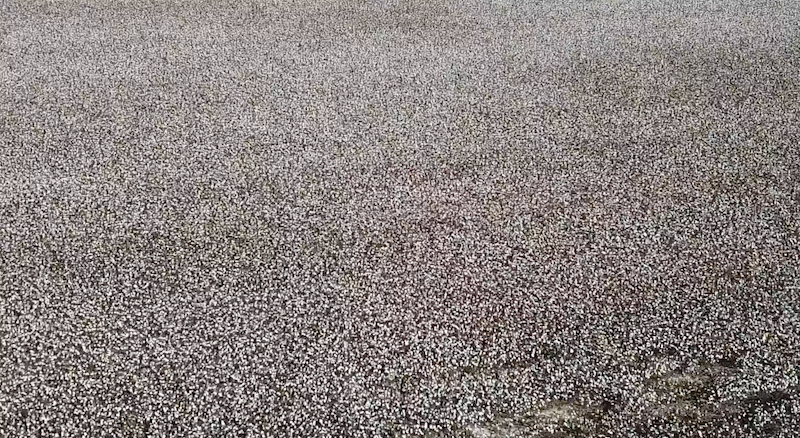West Tennessee Farmer Says He Just Harvested the Best Cotton Crop of His Life
Tennessee Cotton Harvest 111023
Walk into cotton fields across West Tennessee this year, and you’ll step into a snapshot of what 2023 produced.
“This year we've got the potential to make a really good cotton crop in Tennessee,” says Brad Williams, who farms near Burlison, Tenn.
Williams is a farmer, a gin owner and an avid cotton advocate. Williams has been farming for nearly 30 years, with an integrated operation that relies on cotton. He says this year’s crop is one to remember.
“This crop never really struggled at all this year,” he says. “Even on warm or the hot days that we've had, it never wilted any. It looked exceptional all year.”
Ideal Growing Conditions
He says as the cotton pickers swept across his fields, they confirmed his assumptions of a phenomenal crop, and one with a night-and-day yield difference from last year's disappointing harvest.
“Last year was a pretty tough year; probably one of the toughest in my career,” says Williams. “We stayed exceptionally dry the month of July with 100-degree heat. I think we even set a record with 14 days of 100-plus degrees and no rainfall; cotton was really struggling to survive.”
After a year of struggles in 2022, this year’s crop reaped weather that was much more favorable for growing cotton. Williams describes this year’s growing season as almost perfect.
“We have a lot of irrigated ground, and we were in no need of using the irrigation; we were fortunate that we didn't have that expense in our crop this year,” says Williams. “We just had very ideal growing conditions this year. I haven't had a season in 29 years where I’ve seen as good of growing conditions as we had this year."

Photo Courtesy: Don Green
Williams says he is seeing yields at around 1,300 pounds of lint per acre. Last year, yields were between 900 and 950 pounds per acre. The prime growing conditions this year started at planting.
“Planting was pretty much on time this year, with very low pest populations in this crop. And we've been able to maintain this crop as I have pretty much weed-free,” he says.
Harvest came with drier weather, but the dry weather arrived at the prime time as no rainfall was good news for the quality of this year’s crop.
“We can make an exceptional crop and a good, high-quality crop, and that's what we need to compete with the other cotton producing countries in the world,” says Williams. “I think we've got an exceptional, sustainable product. It's out here; we just need a good, dry harvest from here on out.”
Weathering the Storm of Declining Infrastructure and Gins
Williams says cotton isn’t just what his family grows, it’s intertwined in everything they do on their farming operation.
“Cotton is our No. 1 crop. We have a cotton gin and cotton infrastructure in the warehouse and a cotton seed operation, also. We're more kind of a vertically integrated operation, and cotton is our mainstay,” he says.
While cotton is a staple for their family, and one Williams continues to invest in, it’s an industry that continues to weather its own storms.
“In my career, we had around 830 gins nationwide when I started. I think that number is closer to 500 now,” he says. “At one time in Tennessee, we had 45 gins operating in the early 1990s. We're down to six gins operating this year. So, the infrastructure is kind of fading away.”
As cotton continues to fight for acres, it’s a crop that comes with high risks and high rewards.
“Cotton is a riskier crop to grow. It's an expensive crop to grow,” Williams explains.
Williams says despite the risks, he’s just thankful for such an exceptional crop this year. He says growing cotton in West Tennessee is an effort rooted in faith and the drive to persevere.
“I enjoy everything about growing cotton,” says Williams. “I enjoy the picking of it, the ginning aspect of it, producing the quality fiber that can be used around the world. There is something special and unique about cotton, and it’s a blessing to be able to do what we do."







